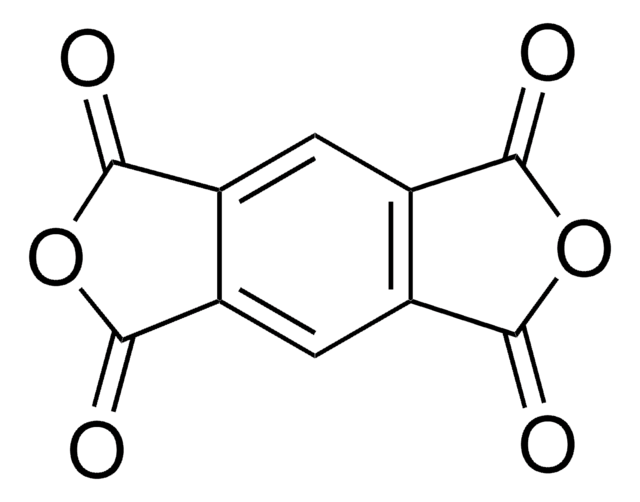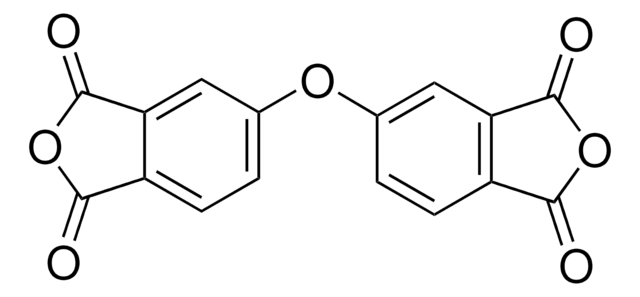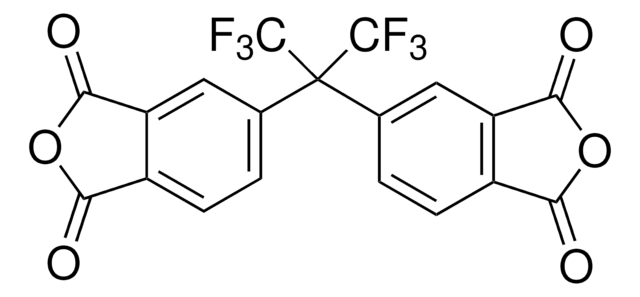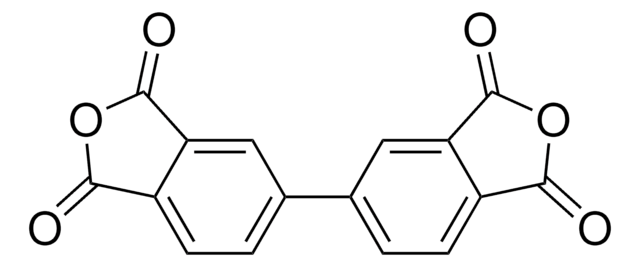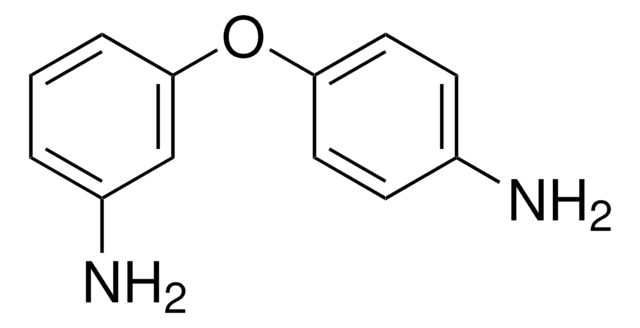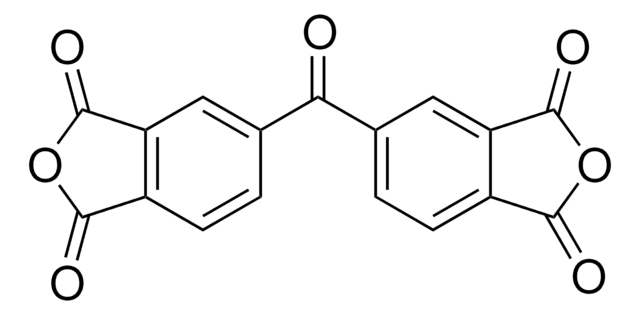Wichtige Dokumente
516805
4,4′-Oxydianilin
97%
Synonym(e):
4,4′-Diamino-diphenylether, Bis-(4-aminophenyl)-ether
About This Item
Empfohlene Produkte
Dampfdruck
10 mmHg ( 240 °C)
Qualitätsniveau
Assay
97%
Form
solid
mp (Schmelzpunkt)
188-192 °C (lit.)
SMILES String
Nc1ccc(Oc2ccc(N)cc2)cc1
InChI
1S/C12H12N2O/c13-9-1-5-11(6-2-9)15-12-7-3-10(14)4-8-12/h1-8H,13-14H2
InChIKey
HLBLWEWZXPIGSM-UHFFFAOYSA-N
Suchen Sie nach ähnlichen Produkten? Aufrufen Leitfaden zum Produktvergleich
Verwandte Kategorien
Anwendung
- Aramides via polycondensation with aromatic dicarboxylic acids.
- Azomethine bisphenols by reacting with aromatic aldehydes, which can be used to synthesize polyazomethines by the oxidative polycondensation in the presence of NaOCl as an oxidant.
- Polyguanamines by the chemoselective polycondensation with 2-amino-4,6-dichloro-1,3,5-triazine in the presence of potassium carbonate as a base.
Signalwort
Danger
Gefahreneinstufungen
Acute Tox. 3 Dermal - Acute Tox. 3 Inhalation - Acute Tox. 3 Oral - Aquatic Chronic 1 - Carc. 1B - Muta. 1B - Repr. 2 - Skin Sens. 1 - STOT RE 2 Oral
Zielorgane
Thyroid
Lagerklassenschlüssel
6.1C - Combustible acute toxic Cat.3 / toxic compounds or compounds which causing chronic effects
WGK
WGK 3
Flammpunkt (°F)
426.2 °F - closed cup
Flammpunkt (°C)
219 °C - closed cup
Persönliche Schutzausrüstung
Eyeshields, Faceshields, Gloves, type P3 (EN 143) respirator cartridges
Zulassungslistungen
Zulassungslistungen werden hauptsächlich für chemische Produkte erstellt. Für nicht-chemische Produkte können hier nur begrenzte Angaben gemacht werden. Kein Eintrag bedeutet, dass keine der Komponenten gelistet ist. Es liegt in der Verantwortung des Benutzers, die sichere und legale Verwendung des Produkts zu gewährleisten.
EU REACH SVHC Candidate List
EU REACH Annex XVII (Restriction List)
Hier finden Sie alle aktuellen Versionen:
Besitzen Sie dieses Produkt bereits?
In der Dokumentenbibliothek finden Sie die Dokumentation zu den Produkten, die Sie kürzlich erworben haben.
Kunden haben sich ebenfalls angesehen
Global Trade Item Number
| SKU | GTIN |
|---|---|
| 516805-500G | 4061832534589 |
| 516805-100G | 4061832534572 |
| 516805-25G |
Unser Team von Wissenschaftlern verfügt über Erfahrung in allen Forschungsbereichen einschließlich Life Science, Materialwissenschaften, chemischer Synthese, Chromatographie, Analytik und vielen mehr..
Setzen Sie sich mit dem technischen Dienst in Verbindung.
